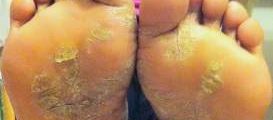FROM PAS 17
SAN FRANCISCO (FRONTLINE MEDICAL NEWS) – Showing pediatric providers a 22-minute online training video about the human papillomavirus (HPV) vaccine and how to counsel families on it improved the providers’ knowledge, attitudes, and confidence in recommending the vaccine, according to a study.
“This video may be a cost-effective way to train providers across the nation to strongly recommend the HPV vaccine, which may ultimately impact vaccination rates,” lead author Maya Kumar, MD, of the University of California, San Diego, said at the Pediatric Academic Societies meeting.
The video was completed before a two-dose schedule of the vaccine was approved for those under age 15 years by the Centers for Disease Control and Prevention, but it remains relevant to current providers. The video is publicly available on YouTube or can be viewed in nine shorter segments on the website of the American Academy of Pediatrics California Chapter 3.
Previous research has shown that one of the biggest obstacles to uptake of the HPV vaccine is the lack of a strong provider recommendation.
“Common reasons for this include inadequate knowledge of the impact of HPV-related disease, perceptions that the vaccine is less important for preteens or less important for boys, and discomfort with addressing parental concerns about the vaccine,” explained Dr. Kumar.
She therefore wanted to see whether a video addressing these concerns and knowledge gaps would improve providers’ knowledge, confidence, and their likelihood of strongly recommending the HPV vaccine to their clients.
The AAP California Chapter 3 created a 22-minute video that explains the burden of HPV-related disease, provides general information about the vaccine, and reviews common provider-related obstacles to vaccination (although not patient-related or systemic barriers). Then the video provides counseling strategies to help providers in improving HPV vaccine uptake at their clinic. Following the discussion of those strategies are eight clinical vignettes in which experienced pediatricians model those techniques with “patients” and “parents” played by actors.
The researchers then showed the video to 109 providers from four large pediatric practices in San Diego and the San Diego Immunization Coalition. The group included 47% of pediatricians and nurse practitioners, 25% of allied health professionals, 20% nurses and 7% of trainees.
Before viewing, the providers filled out a questionnaire assessing their knowledge and attitude toward the HPV vaccine and how they perceived their skill in recommending the vaccine. Then they filled out the same questionnaire after viewing the video.
Providers’ correct answers to questions on their knowledge about the vaccine all increased substantially after viewing the video. The biggest improvement was seen in response to the question about whether the vaccine’s efficacy changes with age. Before viewing the video, 49% of the providers knew that the immune response to the vaccine was stronger among younger recipients and that its efficacy dropped off as people reach their mid-20s. After seeing the video, 89% of providers correctly answered that question (P less than .01).
Another substantial improvement occurred for the question about HPV-related cancers’ prevalence in men. Before the video, 37% of providers answered correctly that a large proportion of these cancers do occur in men; after the video, 67% answered correctly (P less than .01).
The proportion of providers who correctly responded that HPV infects the majority of sexually active people increased from 85% to 90%. Similarly, those who knew HPV catch-up vaccination can be offered up until age 26 years increased from 88% to 96%, and those who knew HPV-related cancer is more prevalent than meningococcal disease increased from 91% to 97% (P less than .01 for all of these). The increase in providers who knew HPV infects the majority of sexually active people, from 85% to 97%, was the only one that didn’t reach statistical significance.
Similar improvements were seen in providers’ attitudes after viewing the video. On a Likert scale of 1 (strongly disagree) to 5 (strongly agree), statistically significant increases occurred for responding to whether it’s important to vaccinate girls against HPV (.07 increase) and the importance of the HPV vaccine for cancer protection rather than wart protection (.22 increase).
Likewise, statistically significant decreases occurred for whether it’s acceptable to delay the vaccine for a child before sexual debut (–0.38), whether it’s more important to give the Tdap and meningococcal vaccines than the HPV vaccines (–0.44), and whether the provider is concerned about short-term (–0.20) or long-term (–0.12) side effects of the vaccine.
Every one of the questions about providers’ skills improved statistically significantly, from increases of 0.19 to 0.66 points:
• Making a strong recommendation for the HPV vaccine.
• Discussing HPV vaccination again with a family who has previously declined it.
• Facilitating completion of a three-dose vaccine series once initiated.
• Presenting the HPV vaccine as a cancer-prevention vaccine.
• Addressing parental concerns about safety and side effects.
• Addressing parental concerns about HPV being sexually transmitted and the need to vaccinate before sexual debut.
• Counseling about the need to routinely vaccinate boys against HPV.
• Counseling about the rationale for routinely giving the HPV vaccine at age 11-12 years.
“There was positive feedback from the viewing providers, particularly about the use of clinical vignettes to model effective counseling strategies for recommending vaccination,” Dr. Kumar said.
She acknowledged that the results may not be generalizable to providers in other regions, and the study was unable to assess whether providers’ actual behavior or practice vaccination rates changed after viewing the video.
The study was funded by an American Academy of Pediatrics Adolescent Vaccinations and Wellness Education Grant, supported by Merck. Dr. Kumar had no relevant financial disclosures.





